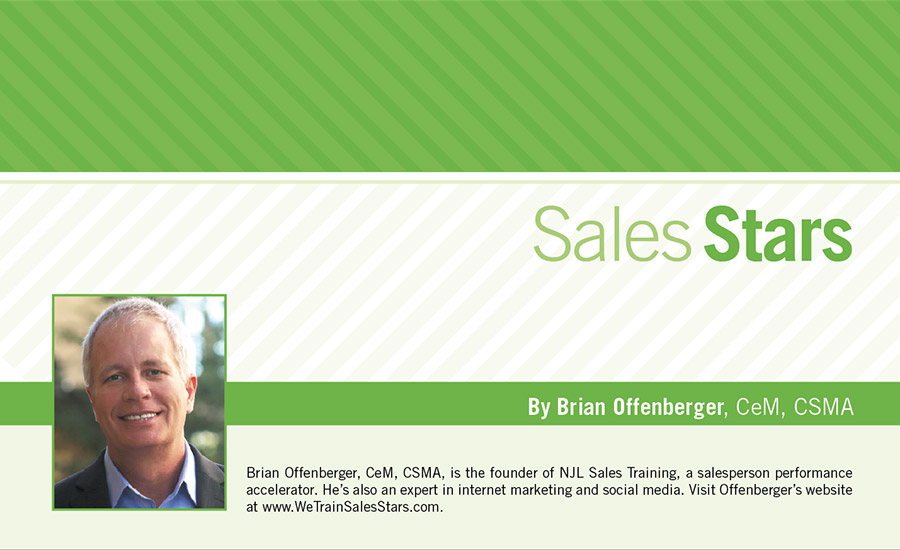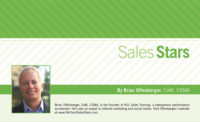About a month ago, I spoke to a group of security integrators and they asked me what the most essential sales skills for success in 2017 and beyond were. After giving their question some consideration, and thinking about all of the ways the Internet has changed selling, I answered that I believe these four skills are the most essential today:
1. Using LinkedIn
Let’s say you fish for a living. Imagine that all the fish were in one big pond. Wouldn’t it make sense that you knew as much about the pond as possible?
That’s what LinkedIn is for security salespeople — it is the pond that holds all the fish. It’s the place where your prospects and customers are, and it will become even more important now that it is owned by Microsoft. It’s the No. 1 social network for business professionals.
Security salespeople need to know how to optimize their personal LinkedIn profiles to be found by prospects and know how to optimize their profiles to convert readers/prospects into connections, leads and sales.
Future editions of this column will focus on those best practices and tips for using LinkedIn.
2. Getting Recommendations
Most security companies and security salespeople could do a much better job of using their existing customers to find new ones. After all, some of your easiest sales at your highest margins come from word-of-mouth recommendations. Doesn’t it make sense to get more of them?
Studies show that consumers use review sites to find companies and to make buying decisions.
Salespeople also must be skilled at getting a customer to contact one of their colleagues to actively suggest that colleague speak to the salesperson.
Follow this two-step process to get online reviews and personal recommendations:
-
Be so good at what you do that there’s no question in the minds of your customers that leaving a review/making a recommendation will enhance the customer’s standing with their colleagues.
-
Ask. Nearly three out of four customers surveyed said they’d leave online reviews. And when you ask for a referral, don’t just get the name, phone and email. Instead, ask the customer to call or email their colleague suggesting they talk with you. That is more effective at securing an appointment and a sale.
3. Cold Emailing
In today’s era, the best way to cold-contact a prospect is to write an email that will get opened, read and answered. Unfortunately, few salespeople have this skill. And despite salespeople using email (and text messaging) every day, companies haven’t trained salespeople on how to craft effective emails that generate a response.
Since I’ve won awards for email, let me summarize the best practice tips:
-
Write a short, relevant subject line. The sender and the subject line are the two most important elements to get someone to open and read your email. Write good subject lines.
-
First sentence — tell the customer what’s in it for them. What’s the benefit?
-
Second sentence — why should they pay attention to you/give you an appointment/buy from you? How are you unique?
-
Third sentence — ask an alternate-choice question to get the prospect to reply to your email.
-
Avoid sending on Mondays and Fridays, if possible.
4. Reactivating Connections
For most salespeople, their contacts are a vastly underutilized resource. And those that do attempt to work with contacts don’t do it well. They’ll send an email like:
Mary, I hope all is well. I’ve got a great new product you need to buy.
Emails like that do nothing to reestablish a relationship, which is vital to reactivating a contact. Instead, send an email that brings value. Ask a real question about their life or career. Get back into the relationship. Begin a conversation. If there is a sale to be made, it will come up, naturally and unforced.






